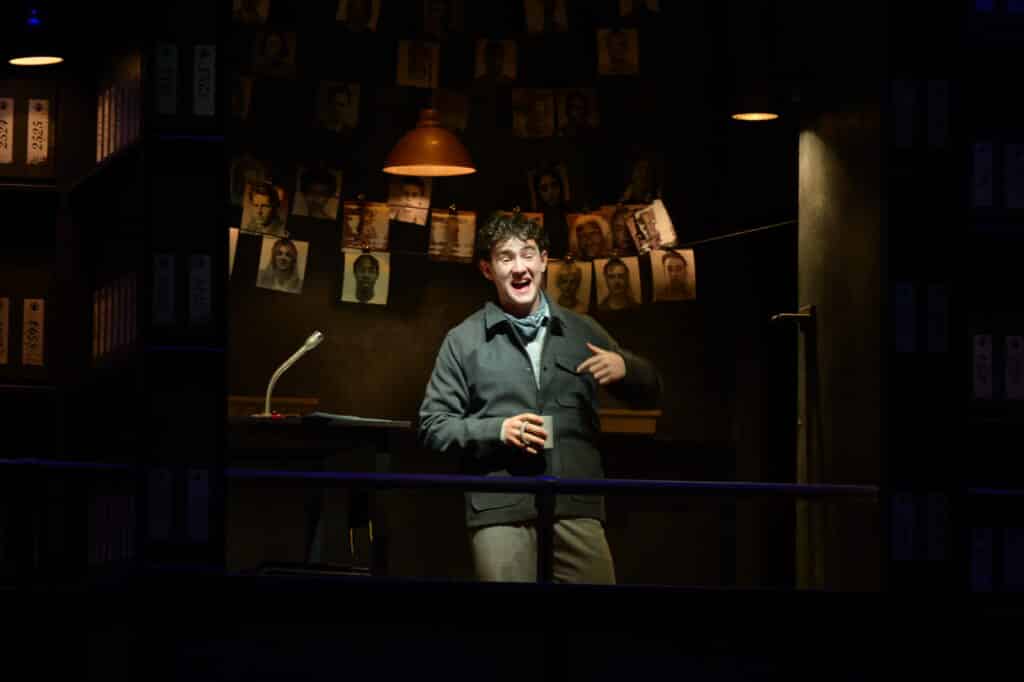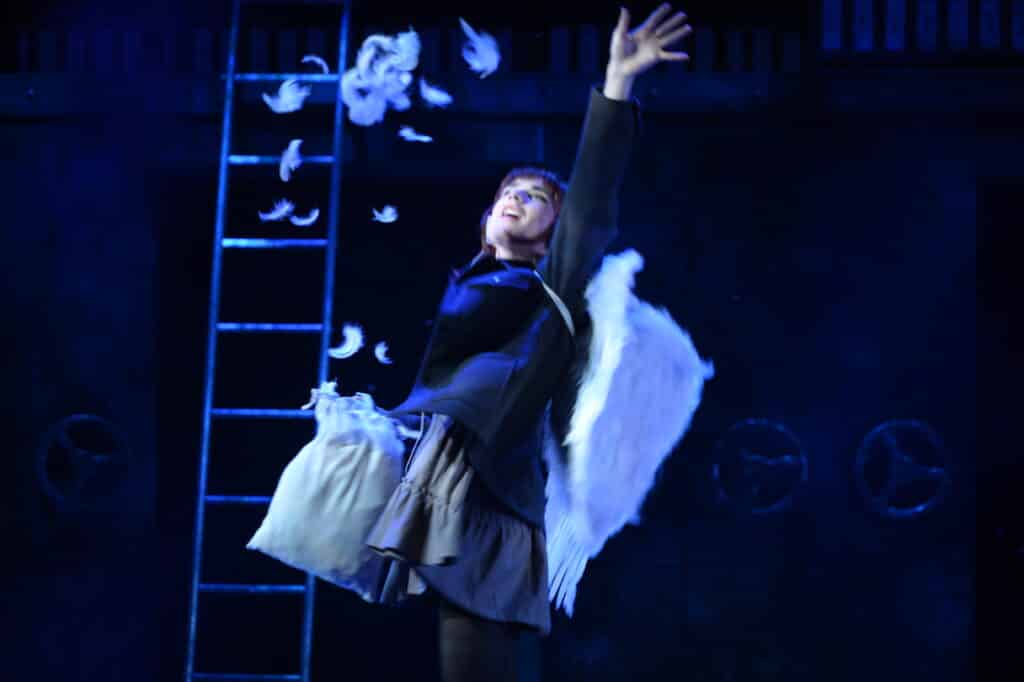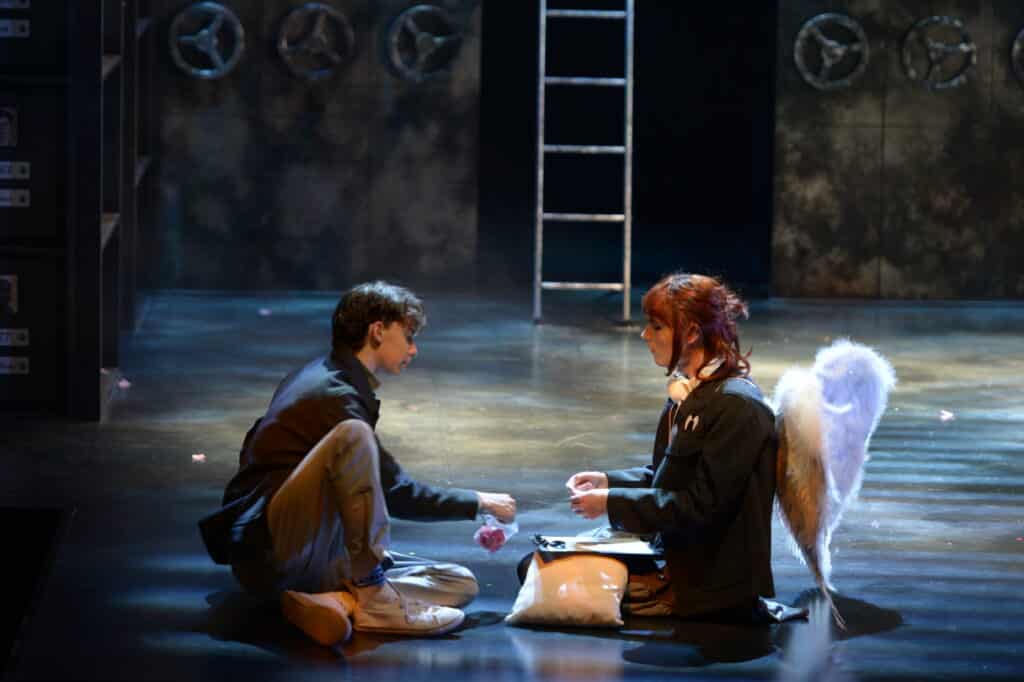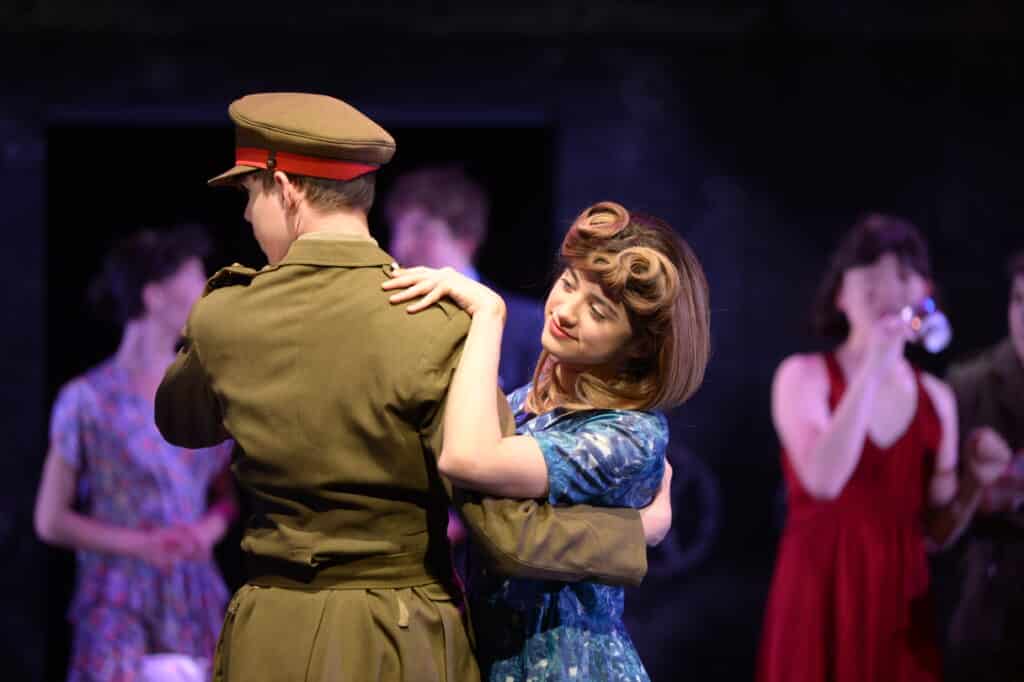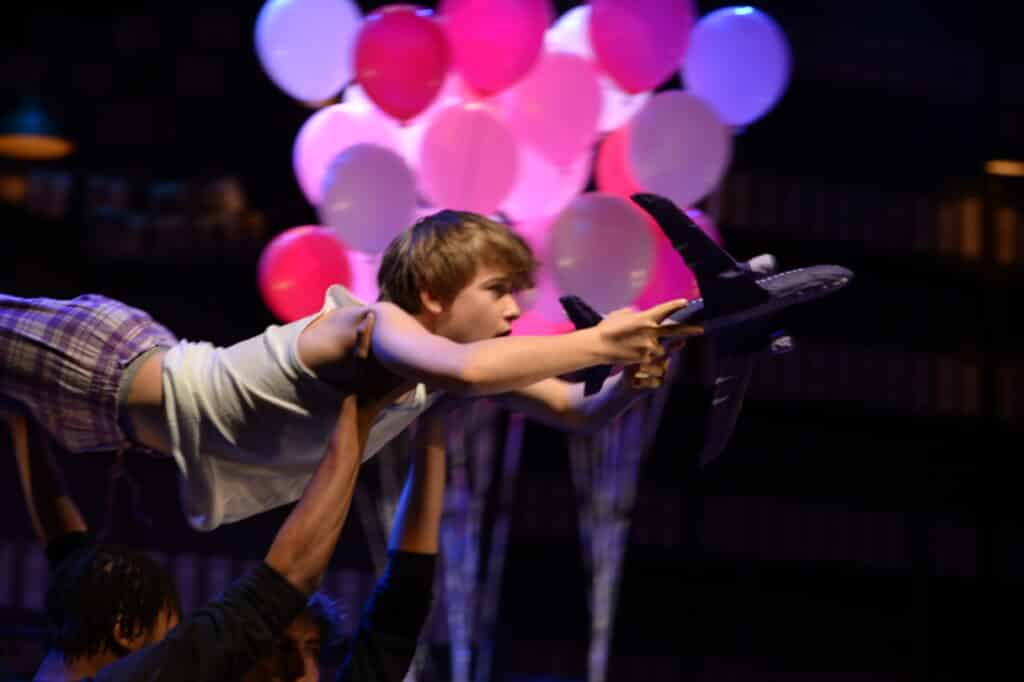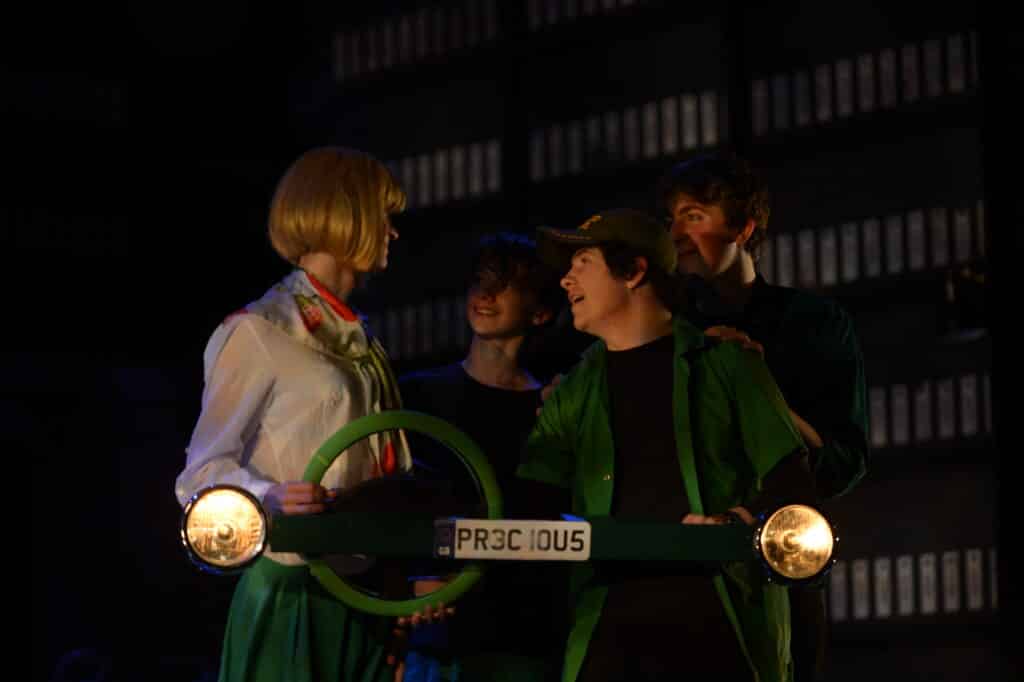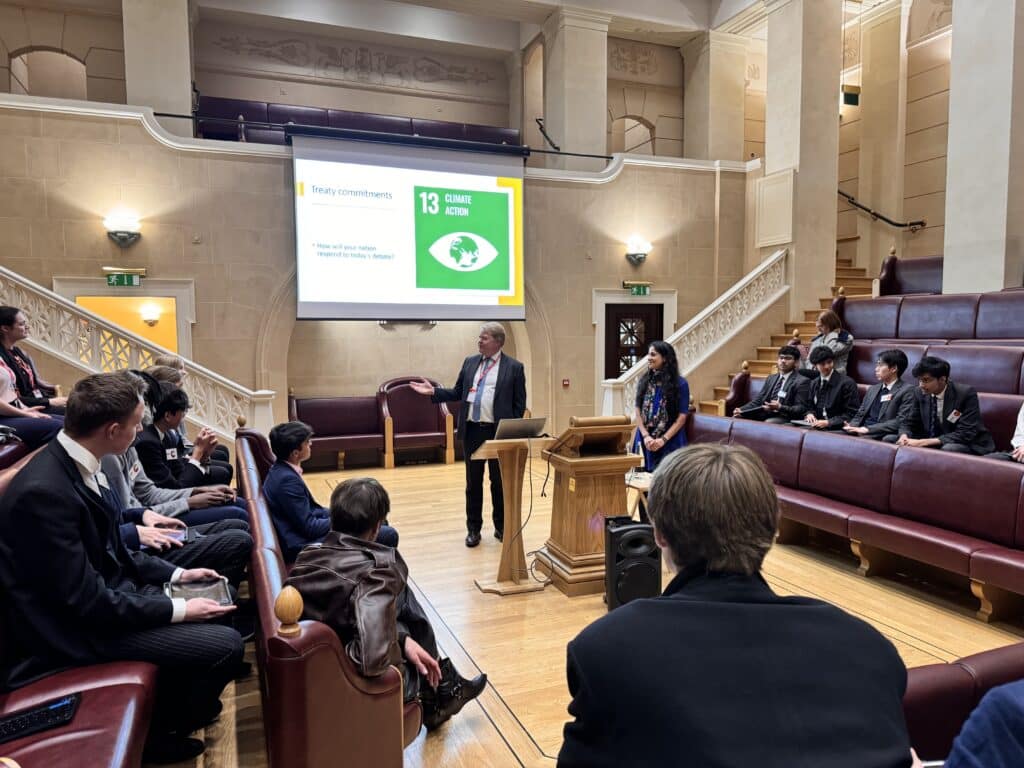The question that Jack Thorne’s After Life, based on Hirokazu Kore-eda’s film, had the sold-out Farrer Theatre asking themselves was “If you could spend eternity with just one precious memory, what would it be?”. Audiences enjoyed three hugely successful performances over the course of three evenings, under the direction of Ms Hale.
The play begins with a brief introduction to where we, the audience, find ourselves. Over the intercom, we are informed that we have just passed away. However, it is not heaven, hell, or even purgatory that lies behind the curtain but a grey-scale industrial processing centre, the walls laden with numerous files, thanks to the creative output of set designers Roma Farnell and Mary Deakes. Over the course of the evening, we follow a working week in which the “Guides” attempt to find and recreate the one precious memory of the “Guided”.
Whilst we see many of the recently deceased pass through their journeys through this bureaucratic limbo, the real story lies within the “Guides”, a group of hard-working, dedicated professionals. These “Guides”, we find out, have also passed through the same process, but have failed to find a memory for themselves and have decided to help others to do so. They are all dressed in grey uniforms, with some differentiation to reflect their characters; One (Roman B), wears a grey bomber jacket, Two (Billy H) wears a tracksuit top, Three (Hector D) wears a turtleneck and Five (Marcus S), the former Geography teacher, wears a fleece. All their uniforms share the corporation’s angel wings logo. However, they make a point to emphasise that they are not angels, despite Four (Xander L), a “Guide” who died as a teenage girl, dressing up like one from time to time.
Over the week, the audience becomes acquainted with the array of characters that make up the “Guided”. Beatrice Killick (Albie I) is an elderly woman whose biggest worry is whether her cat will have enough food following her death. This thought obstructs her ability to find a memory, until the “Guides” manage to remind her of her first dance with her husband when she was a girl. Two and his team work to find the perfect red dress and the tastiest sugar bread recipe in order to best replicate this memory for her.
Hirokazu Mochizuki (Obum O) is a middle-aged man who has, admittedly, lived a very boring life. He has nothing to remember, apart from his wife Katie. However, as the play progresses, it is revealed that Katie was also Two’s lover before he passed. Two deals with an internal conflict on whether or not he is in a position to guide Hirokazu, lamenting the fact that he has lived the life that he would have had he not died so young. Eventually, the pair join together and bond over their fond memories of Katie, with Hirokazu choosing his eternal one to be sharing lunch with his wife on a park bench.
Jill Smart (Bertie W), a teenage girl, initially chooses going on a rollercoaster at Disney Land but after Four mentions that dozens of other teenage girls have chosen the same memory, she reconsiders. Instead, she chooses to remember laying down in her mother’s lap underneath a cherry blossom tree. The “Guides” work tirelessly to find the correct petal size and the rate of the falling of the leaves in order to recreate this for her.
Henry Thompson (Ollie W), at first, is too shocked to speak. His struggles to communicate render it difficult for the “Guides” to help him, but as he slowly opens up, at the end of the week, he says that he would like to remember playing with his toy Cessna as a young boy.
The final of the Guided is Obafemi Taylor (Aled J). A young Christian man, he struggles with the idea of a lack of heaven. He reflects on how his father used to tell him to pray to get into heaven and is at first defiant of his far less spiritual after-life. Initially, he decides that he wants to remember catching a Malteser in his mouth, but after dissuasion from Five, he then decides to remember a dream that he had, where he could fly. Unfortunately for him, dreams do not count as memories and this proposal is shut down. Eventually, he decides to join the “Guides”, remaining in the bureaucratic limbo, replacing Two who at last minute, decides to pass through, choosing to remember sitting on a bench looking out at his fellow “Guides”.
Whilst the theme of death permeates the play, it also serves as a meditation on what it is to live. The juxtaposition of the pure entertainment factor with the creative visual segues into the next working day and the witty workplace banter, and its ability to arouse personal introspection, all consolidates into a really well-performed and convincing play. Aphex Twin’s ambient music plays in between each scene to elevate the opportunity for reflection and to create a surreal but calming experience. The shoes, lit up by spotlights to represent the souls lifting up from their bodies, leave behind simple material objects to judge them by.
This detail serves as a vivid reminder of the fact that we have to live our lives to the fullest, to create as many memories as we can so that our one struggle will be to decide which one to choose from.

